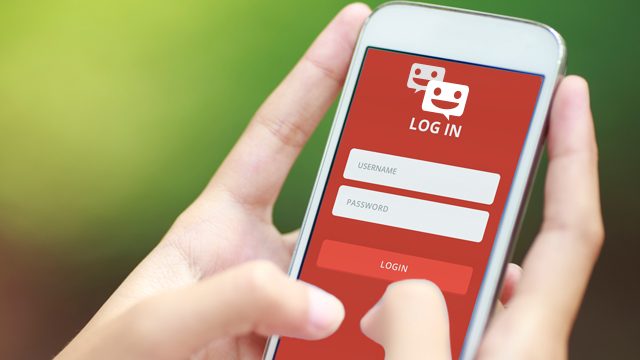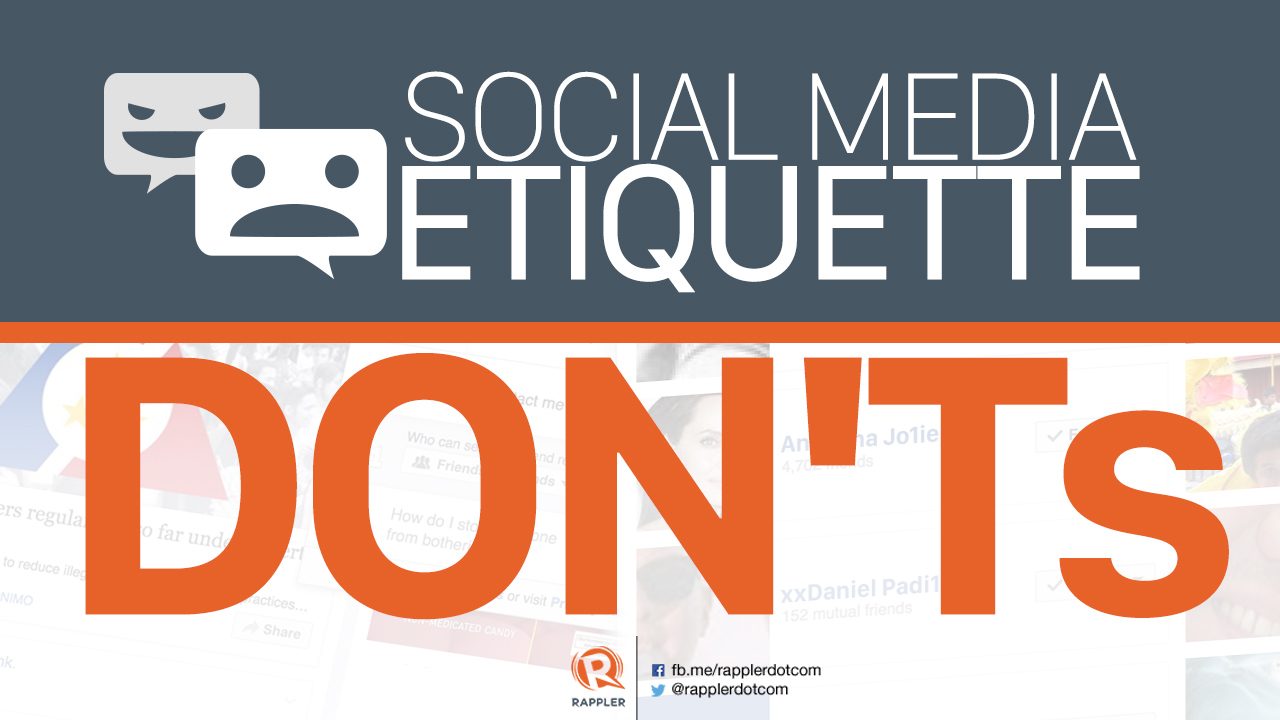SUMMARY
This is AI generated summarization, which may have errors. For context, always refer to the full article.

MANILA, Philippines – Filipinos are very active on social media.
Out of 100 million people in the Philippines, 47 million have active Facebook accounts. Twitter, meanwhile, has 6.21M montly active users in the country.
The use of social media, however, has evolved from just a mere way to catch up with friends but also a platform for debates in the Philippines.
Filipinos no longer just go online to check what their friends are doing or upload their latest selfies, but to also post their insights on different issues.
For example, 22 million Filipino Facebook users actively engaged in conversations about the 2016 Philippine elections with friends and family members.
Unfortunately, there are incidents where healthy and informative debates turned toxic and hostile due to people who resort to personal attacks when faced with opinions different from theirs. Online sites that were previously used to further engagement with netizens have been filled with comments that degrade, threaten, and humiliate people.
So-called “trolls” are taking over the internet and as responsible social media users, you have the power to counter their attacks. (READ: Propaganda war: Weaponizing the internet)
How can you help achieve a safe and free social media? Rappler lists some do’s and don’ts:
1. DO check if your privacy settings are ultra secure.
These settings can usually be found and configured in the “Settings” section of most social networking sites.
Restricting access can ensure that your personal information is only shared with those whom you trust, such as your friends and family. Configuring your privacy settings will hinder people you don’t know from accessing your profile, preventing online crimes such as identify theft.
2. DO make sure that you carefully screen online friends or followers.
If you cannot keep your online circle just within your friends and family, make sure that the “strangers” you accept online are real people.
Fake profiles are a dime a dozen nowadays, ran by identity thieves to “troll” or threaten people online. If you are not careful with who you accept within your social media circle, you might fall as a victim.
3. DO only post online what you can say in real life.
Always remember that even if the “delete” option is available in most social media sites, any person can still save status updates, comments, photos, and videos that you have posted online.
Keep in mind that the things that you post online are “permanent” and can be held against you. Ask yourself, if the person I’m attacking or even alluding to is in front me, can I say what I just posted or commented to his or her face?
If not, then it’s better to find another way – perhaps in a milder manner – to get your point across.
4. DO respect the opinions of other netizens.
Do not expect that everyone will have the same opinion as yours. Remember, however, that having a different opinion about an issue is still okay and does not automatically mean you are wrong.
You may choose to debate with the person given that your arguments are based on facts. You may also try to explain your stand but never threaten someone just because you are not on the same page.
Respect their opinions and never resort to threats, especially death threats or you may be liable to the law.
5. DO be careful where you get your information from.
The internet is a goldmine of information that any person can access anytime. Its accessibility has led to raising awareness on various issues and concepts. Having these information have lead to rich discussions online.
It is a different matter, however, when it comes to malicious websites and false information they churn out. These are often posted and spread to purposely malign an individual or a group. There are also instances when these websites carry malicious programs that can either damage your computer or even access your personal information.
To prevent these from happening, make sure that you only get information from legitimate websites. Avoiding misinformation can help forward healthy discussions that feed on facts online.
If you come across a website or a Facebook account that looks like it is presenting false information, report it so it can be apprehended.
1. DON’T use your social media accounts to spread hate.
The beauty of social media is that it opens doors to discussions that otherwise cannot happen offline due to limitations (geographical, among others). Most people also use social media – Facebook, for example – to also keep up with what’s happening with their family and friends.
However, social media recently has become toxic because of “trolls” that swarm comments sections of various websites. Instead of positive inputs, they do not contribute anything if not destroy healthy discussions overall.
Do not be one of the these people. Do not use your social media account for the sole purpose of demeaning individuals or groups. Do not resort to personal attacks when you come across a post or a comment that is against your stand.
2. DON’T share too much information online.
Although it is somehow tempting to post almost everything and anything on your social media accounts, remember to avoid oversharing personal information that can be used by identity thieves or online trolls.
For example, do not post details that you may have used as passwords in any online and offline accounts. These include information that can answer security sections such as your mother’s maiden name and the name of your first pet.
It is the same with information of other people. If you are in possession or knowledgeable of a friend’s personal details, seek permission first if you really need to post it online. Remember that identity thieves do not only pry on social media profiles to get to the owner, he or she also keeps an eye out for other vulnerable people.
As much as possible, send personal information via private messages.
3. DON’T forget to cite your (legitimate) sources.
If you are jumping into a debate either in a comments section or through your personal Facebook profile, make sure that you put the legitimate source of the information you used. It will not only make your point credible, it will also help others explore literature related to your stand or point of view.
It is the same when you post photos or videos. If you did not personally took the photo or video, make sure to include in your post the website where you got it or the person who took it. This way, you will not be accused of plagiarism.
However, make sure that your sources are credible enough or else you might contribute to widespread misinformation.
4. DON’T share unverified information.
Things travel fast on the internet. This is a good thing when the information shared is credible and have been proven to be true. However, there are instances when false information have been widely spread to the point that no amount of disclaimers can stop people from continually sharing.
This is why it is important to not share unverified information on your personal social media accounts.
Unverified information include bomb threats, deaths, and other details that may incite worry or panic among people. Remember that you may be liable to the law if you share these types of information, specially bomb threats.
If you come across unverified information, wait until it is confirmed by local authorities or other credible websites before you spread it to your network. It is better to be safe than sorry.
5. DON’T tolerate cyberbullies.
Draw the line when comments in your personal posts have become excessively hateful. If the netizens are not anymore contributing to a healthy discussion, feel free to call them out. If that does not work, delete their comments.
Remember that your personal Facebook page is your own space in the internet. You have the right to make it free of harassment.
If you come across death threats that may or may not be directed at you, you may report the person to the Philippine National Police’s Anti-Cybercrime Group (PNP-ACG) for appropriate actions.
No matter how small, not tolerating bullies can be your contribution to a safer and healthier social media. – Rappler.com
Add a comment
How does this make you feel?


There are no comments yet. Add your comment to start the conversation.